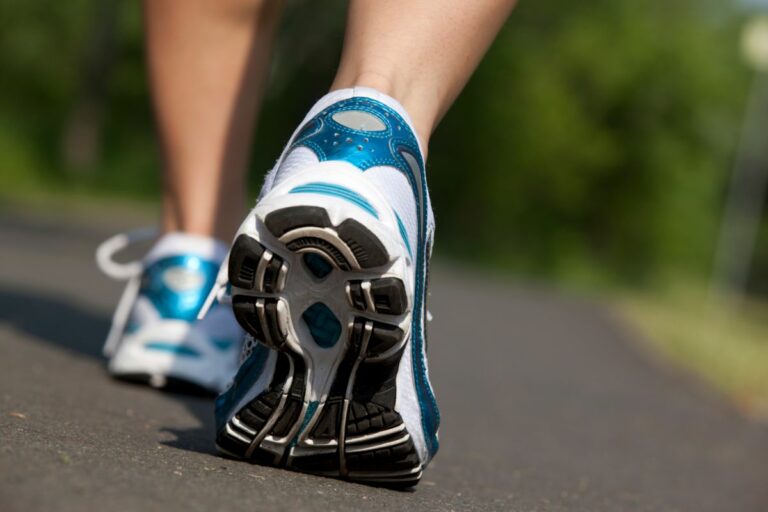How Long Does It Take To Run 3 Miles? (On Average)

Are you running 3 miles a day? Or are you thinking about starting to run 3 miles a day? Whichever it is, it is natural to wonder how long it takes – or should take – to run 3 miles.

The simple answer to this question is that it depends.
Specifically, how long it takes to run 3 miles (4.82 kilometers) will depend on:
- overall fitness
- age
- pace (running speed)
- whether elevation is involved
- whether running breaks are involved
In fact, even running on a treadmill will significantly affect how long it takes to run 3 miles. The treadmill’s quality, the accuracy of the treadmill, and the assistance from treadmill belts affect your running.
This article will go through average 3-mile run times and what you can do to improve your running time.
Average 3-Mile Run Time
What is the average 3-mile run time? Or what is a good running time for 3 miles?
A young or middle-aged runner of good fitness will run 3 miles within 30 minutes.
- In general, you should aim to run a mile within 10 minutes.
- Keep the pace for the rest of your run to reach 3 miles within 30 minutes.
An average runner will run one mile in 10 minutes or under. An elite runner will run a mile in 5 minutes or under.
How Long To Run 5k?
5k is one of the most popular running distances.
It is a reasonable, achievable daily distance that can increase physical fitness, improve endurance and stamina, and burn body fat/calories.
5 kilometers is equivalent to 3.1 miles – so there is not much difference between running 3 miles or running 5 kilometers (0.3 kilometers, to be exact).

For that reason, the average running times are near enough the same.
- A physically fit young or middle-aged individual can run a 5K in around 30 minutes (good average time).
- Very fit individuals will run 5 kilometers in less than 25 minutes.
How Can I Improve My Run Time?
If you are not yet running 5k or 3 miles within 30 minutes, don’t worry.
Many external factors can affect this, including if your running route involves hills. Even the slightest elevation can force your muscles to work harder, increasing exhaustion.
Try running 3 miles / 5k on a flatter running route that does not involve bumpy paths or traffic.
Ultimately, however, it is more than possible to improve your running times – no matter your age.
Of course, the more you run, the fitter you will get in terms of endurance, stamina, and muscle strength. This is a natural course for improving your running time.
At the same time, you can improve your running time – specifically, your performance – in several ways. These include:
- vary the type of running workouts (intervals, tempo runs, fartleks)
- improve your quantity and quality of sleep
- improve your nutrition
- rest between runs
- supplementation (creatine, BCAAs)
- pre-workout (caffeine and/or high-energy food taken before running)
- optimal hydration
- stretch before and after running
The Benefits Of Running
Running is more than chasing records or trying to beat certain times, like just trying to run a faster mile. Keeping track of your own progress is a good idea, but don’t compare yourself to others.
Running is one of the best ways to improve fitness, cardiovascular endurance, and lose weight (burn calories/fat). Even without trying to beat times of others 🙂
So, running should reduce the stress, and don’t take stress about lap times.
Summarized, the benefits of running include:
- improving general fitness
- losing weight through burning calories and reducing body fat
- strengthening the leg muscles, joints, and tendons
- effective stress relief
- increased levels of dopamine and serotonin
- reduced risk of diseases and medical conditions
The Official Records for the Outdoor 5,000-metre Track Events
Running 5,000 meters is a common long-distance event in track and field, approximately equivalent to 3 miles.
- Joshua Cheptegei of Uganda holds the men’s 5,000-meter world record in 12:35.36, which he ran at Stade Louis II, Monaco, on 14 August 2020.
- The women’s world track 5000-meter record currently belongs to Letesenbet Gidey of Ethiopia, who won 14:06.62 in Valencia on 7 October 2020.
The men’s 5,000 m has been part of the Olympic program since 1912, and the women’s 5,000 m since 1996.
The same distance is known as a 5K run in road running. This helps to differentiate the two events.
https://www.worldathletics.org/records/by-category/world-records
Frequently Asked Questions
How Hard Is It to Run 3 Miles?
How hard it is to run 3 miles will depend on overall fitness level, age, and whether the running route involves any elevation.
The difficulty of running 3 miles will DECREASE the more you run and become fitter.
In general, a healthy individual will be able to run 3 miles within 30 minutes.
3 miles may be easier to run on a treadmill, due to the assistance of the belt.
Factors that can make running 3 miles harder include elevation, bumpy routes, and traffic.
How Much Weight Can I Lose if I Run 3 Miles a Day?
How much weight you can lose by running 3 miles a day will depend on your current weight, age, and the pace (speed) that you run.
Running 3 miles a day is a great way to burn calories and body fat.
Ultimately, to lose weight, you need to be in a caloric deficit: burning more calories than consuming daily.
Since running is an effective way to burn calories, running 3 miles a day will help lose weight (see also Running But Not Losing Weight).
Is It OK to Run 3 Miles Every Day?
Nothing should stop you from running 3 miles every day. Make sure to adequately stretch before and after each run. Get adequate rest between each of your runs.
Suppose you experience any discomfort or pain from running? In that case, it is recommended to rest or see a health professional if needed.
Recovery time between runs can be improved with high-quality sleep, good nutrition, supplementation, and stretching.
Conclusion
How fast should you run 3 miles? The answer depends on your overall fitness, age, and running pace. Elevation and running breaks have their mark too.
In general, however, a healthy individual will be able to run 3 miles in under 30 minutes.
If you are not yet running 3 miles within 30 minutes, it is more than possible to improve your running time and overall performance.
This can be done with pre-run and post-run stretching, good sleep and nutrition, adequate rest, and supplementation.






